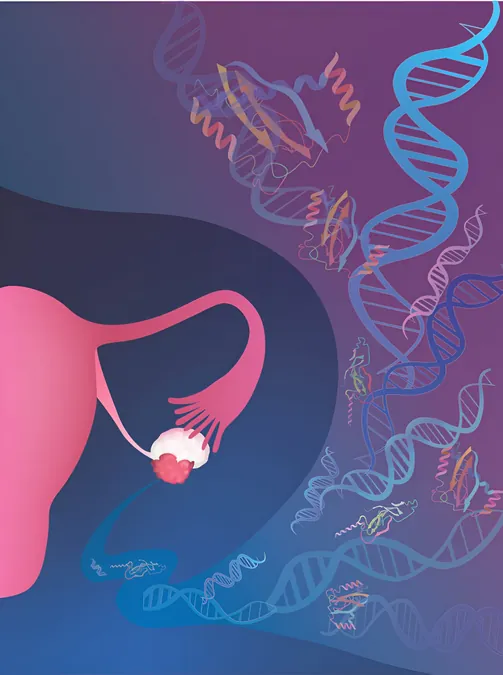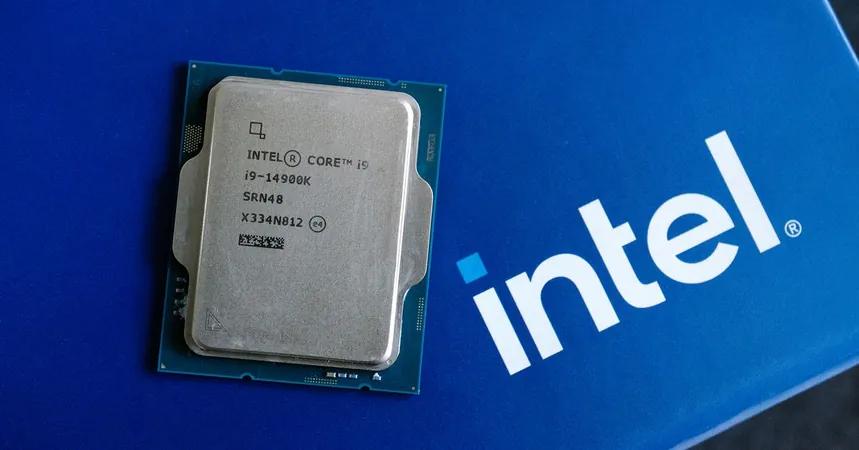
Revolutionary AI 'Liquid Biopsies' Set to Transform Early Detection of Ovarian Cancer
2024-09-30
Author: Daniel
Groundbreaking New Study
A groundbreaking new study from the Johns Hopkins Kimmel Cancer Center reveals that an innovative blood test leveraging artificial intelligence (AI) could be a game-changer in the early detection of ovarian cancer. This remarkable advancement integrates cancer-related genetic information with protein biomarkers and shows promise in improving screening accuracy for this often deadly disease.
Published Research
Published on September 30 in the journal *Cancer Discovery*, the study showcases research conducted by a collaborative team across institutions in the United States and Europe. The AI-driven analysis focuses on DNA fragments and two protein biomarkers, cancer antigen 125 (CA-125) and human epididymis protein 4 (HE4), to better identify cases of ovarian cancer in women.
Limitations of Traditional Biomarkers
Historically, while CA-125 and HE4 have been recognized as potential biomarkers for ovarian cancer, they have fallen short when used in isolation. However, when combined with advanced AI technology that recognizes specific patterns in cell-free DNA circulating in the blood, the effectiveness of these biomarkers skyrocketed, allowing for a more accurate differentiation between malignant tumors and benign growths.
Expert Insights
According to Victor E. Velculescu, M.D., Ph.D., the senior author of the study, “The integration of AI, cell-free DNA fragment analyses, and these protein biomarkers in a streamlined blood test has demonstrated improved detection capabilities, particularly in the early stages of ovarian cancer.” He emphasizes that this could pave the way for an accessible and cost-effective screening method that could save countless lives.
Ovarian Cancer Statistics
Ovarian cancer is a significant health concern, ranking as the fifth leading cause of cancer-related deaths among women in the U.S. Its five-year survival rate hovers around 50%, revealing a dire need for improved early detection methods. Jamie Medina, Ph.D., co-first author of the research, elaborated on this, stating, “Most women are diagnosed in advanced stages when survival rates plummet; the absence of clear early symptoms or reliable biomarkers has contributed to this late diagnosis. Early detection could drastically change outcomes.”
The DELFI Methodology
The study employed an AI methodology known as DELFI (DNA Evaluation of Fragments for early Interception), which operates on a principle called fragmentomics. This technique relies on the understanding that, in healthy cells, DNA is organized in an orderly manner, whereas, in cancer cells, DNA fragmentation becomes chaotic. By analyzing these fragmented DNA pieces in blood samples, the DELFI-Pro test effectively discerns cancerous changes from the benign.
Research Details
The research involved blood samples from 94 women diagnosed with ovarian cancer, 203 with benign ovarian tumors, and 182 who showed no signs of ovarian growths. Administered in hospitals across the Netherlands and Denmark, the DELFI-Pro test outperformed traditional methods, detecting a staggering 72% to 100% of various stages of ovarian cancer, while maintaining a similarly high specificity rate and exhibiting minimal false positives.
Validation and Success Rates
Furthermore, the test was validated on a second cohort of American women and achieved comparable success rates, identifying 73% of cancer cases. Remarkably, it showed an 81% detection rate for the aggressive high-grade serous ovarian carcinoma. Unlike conventional ultrasound exams, which often lead to unnecessary exploratory surgeries, the DELFI-Pro test distinguishes between benign and malignant growths with precision.
Revolutionizing Women's Health
With ovarian cancer characterized by a distinct DNA fragmentation signature, identifying these patterns early could revolutionize women's health. Akshaya Annapragada, co-first author and M.D./Ph.D. candidate, noted that being able to distinguish between benign and cancerous lesions through liquid biopsies could spare many women invasive procedures while potentially saving lives.
Future Implications
This cutting-edge research points toward a future where AI-driven blood tests not only enhance detection rates but also ensure women receive timely and accurate diagnoses, fundamentally altering the landscape of ovarian cancer screening. Stay tuned as this technology continues to evolve—this could be the breakthrough we’ve been waiting for!




 Brasil (PT)
Brasil (PT)
 Canada (EN)
Canada (EN)
 Chile (ES)
Chile (ES)
 España (ES)
España (ES)
 France (FR)
France (FR)
 Hong Kong (EN)
Hong Kong (EN)
 Italia (IT)
Italia (IT)
 日本 (JA)
日本 (JA)
 Magyarország (HU)
Magyarország (HU)
 Norge (NO)
Norge (NO)
 Polska (PL)
Polska (PL)
 Schweiz (DE)
Schweiz (DE)
 Singapore (EN)
Singapore (EN)
 Sverige (SV)
Sverige (SV)
 Suomi (FI)
Suomi (FI)
 Türkiye (TR)
Türkiye (TR)